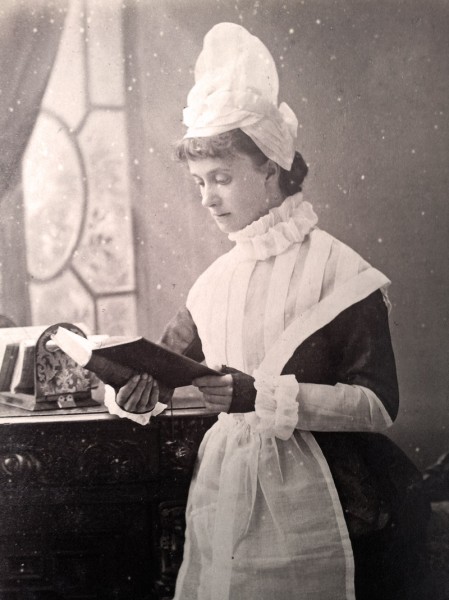Don't let anyone say a) it is political correctness 'gone mad' or b) you are making a 'fuss about nothing'

There are approximately 275,000 women and girls living in Cornwall and the Isles of Scilly today--yes, 51% of the population, that is a majority!
This week at History 51 we have been musing and debating the maleness (?) of Cornish history and heritage. The story of men is written into the DNA of the over-arching narrative of Cornish history being based on the fisherman, the miner and the engineer. However we all know that it is not as simplistic as that.
Earlier in the week, I wrote a critique of Cornish heritage, provoked by what seems to be an innocent statement written in a newspaper article by Cornwall Councillor, Bert Biscoe. He begins the article:
“Good news that Cornish tin has quickly become economic to mine. It is no shock to those who, like many Cornishmen all over the World, closely study the metals markets and geology. It offers an opportunity to rekindle skills and wealth generation and also to place Cornwall once again in the forefront of economic life – innovating, supplying, managing risk and prospecting.”
 I have qualified my criticism of Bert Biscoe's words as I do not believe he is a sexist person but it is alarming in many ways that such a thing can be so easily written and reproduced without comment.
I have qualified my criticism of Bert Biscoe's words as I do not believe he is a sexist person but it is alarming in many ways that such a thing can be so easily written and reproduced without comment.
Trelawney has become the Cornish national anthem. In it we intone the following:
And shall Trelawney live?
Or shall Trelawney die?
Here's 20,000 Cornish men
Will know the reason why!
Repeated with passion by those of us who sing it, are we accidentally surrendering to the male narrative and absorbing it into our consciousness?
And that is why I have decided to comment, and encourage all those who care about the diversity and totality of Cornish history, identity, culture and heritage to do the same for the sake of everyone's better understanding of the past: men and women, girls and boys.
There is no history without women!
Don't let anyone say a) it is political correctness 'gone mad' or b) you are making a 'fuss about nothing' - women being known in particular about being fussy (I prefer to call it being particular) or c) you are 'man-bashing' and causing a generation of boys to lack confidence.
Why is women's history important?
Three comments, one from a man, two from women, we received on our Facebook page and via email particularly resonated with me this week in answer to this question:
"...that's like saying why is history important? There is no history without women!"
A lecturer on Cornish mining told me (this century) that women didn't use to work underground in Cornish mines because a Cornishman was too much of a genetleman.
I would not like to be a young woman lacking in self-confidence these days. I've never had much time and will not tolerate men (or women) referring to women as 'bitches', 'whores' and 'sluts'.
Remember the bread makers, not just the bread winners
Cornish history is full of testimony and evidence of women's lives and achievements. It's just not easy to find. We will be changing this. Because we have based our public histories on activities and events led by men e.g. hunting, war, conquest, raiding, engineering... they privilege those protagonists as the drivers of change in our society. We should remember those that make the bread as well as those that win it.





